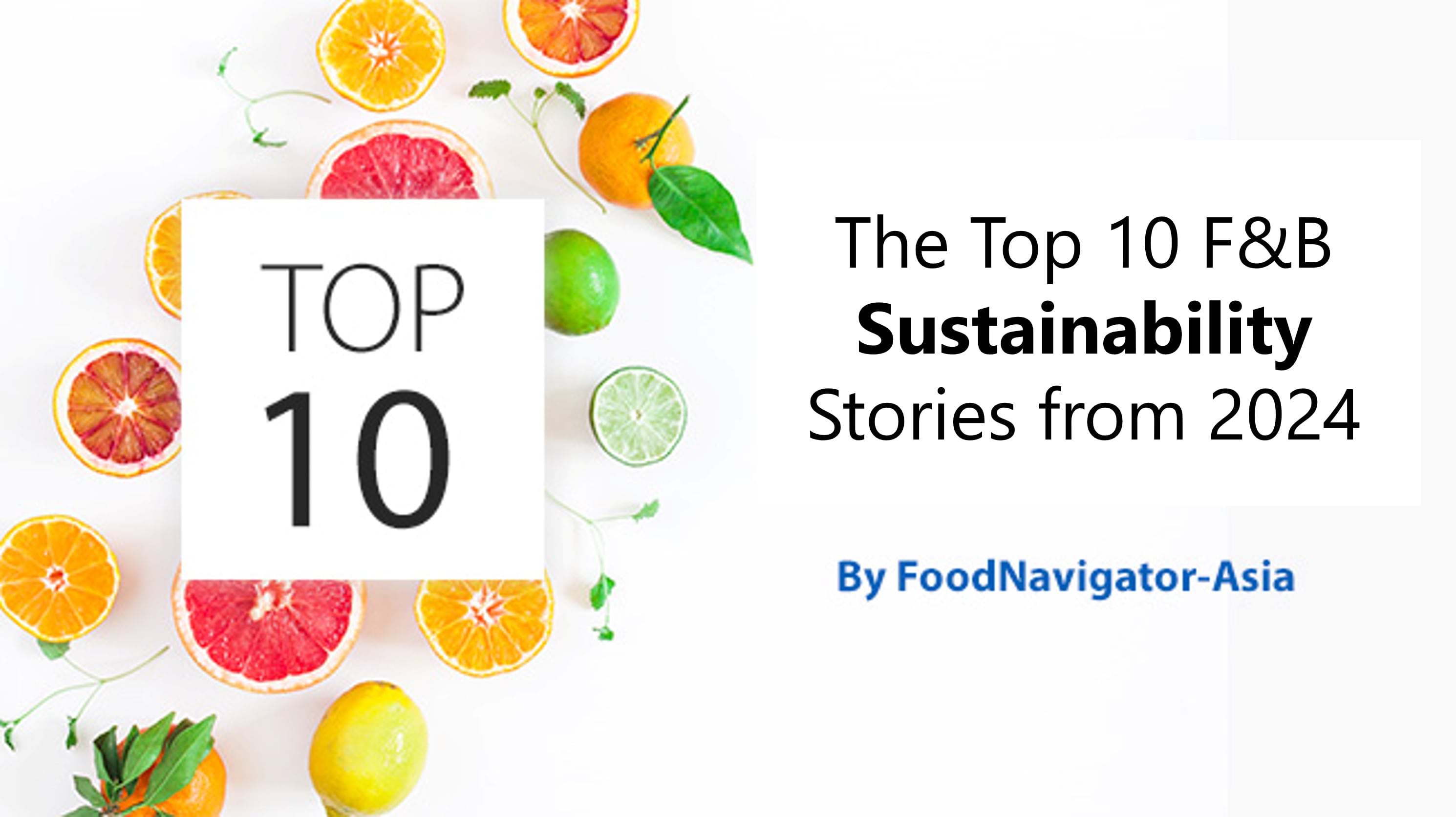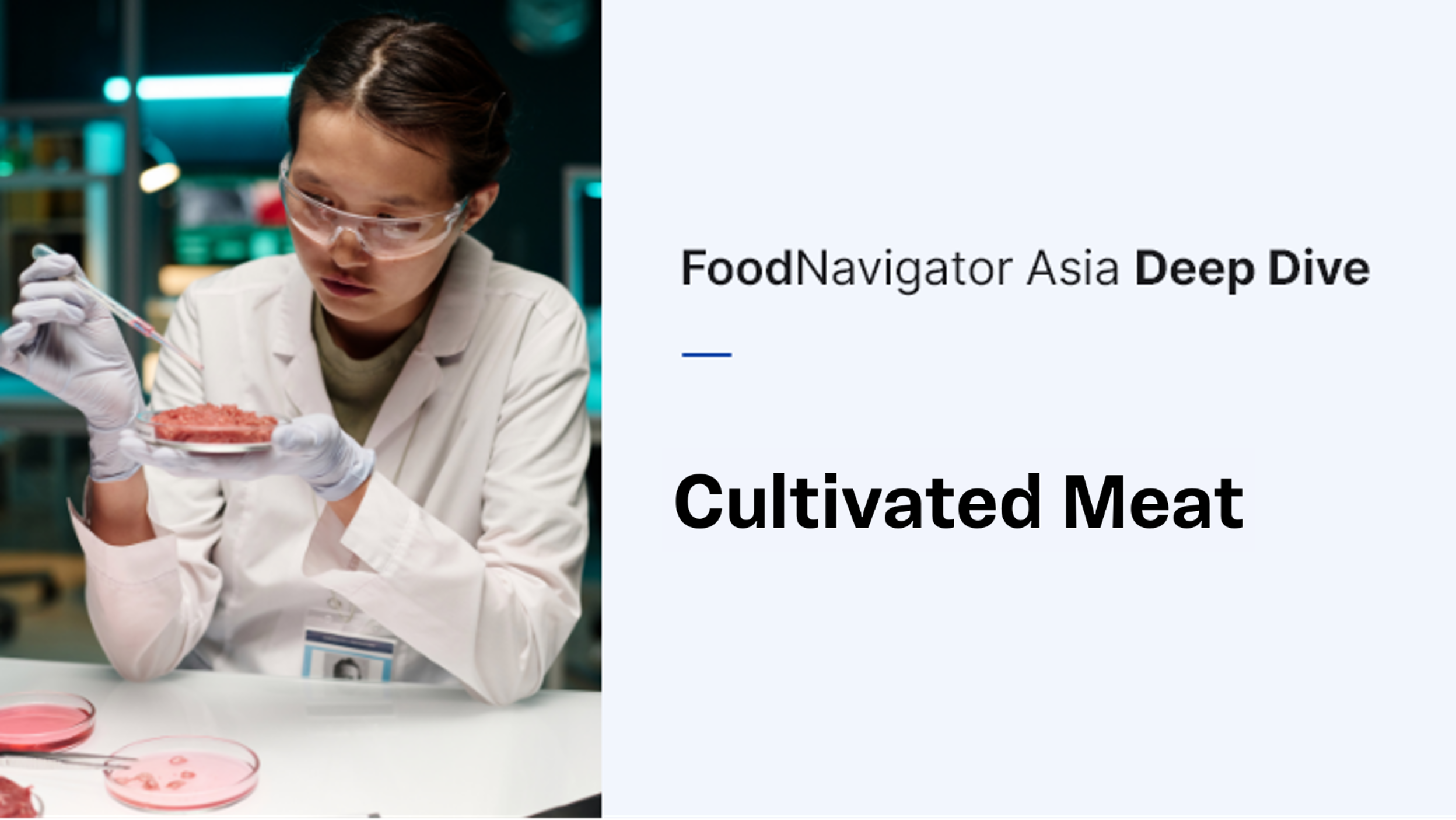Bureaucratic bungle: EU deforestation regs face postponement pressures amid ‘urgent’ commodity trade concerns
The EU Deforestation Regulation (EUDR) underwent pressure from within its own Parliament to postpone implementation as an ‘urgent’ matter earlier this year, with concerns looming over key trade commodities such as palm oil and cocoa.
The EUDR received much criticism particularly from palm oil industry experts and countries producing key commodities likely to be affected such as palm oil, cocoa and coffee – and it came under fire from within the EU parliament as well.
This dissent was led by European Peoples’ Party (EPP) environmental spokesperson Peter Liese, which pushed for an ‘urgent’ postponement and ‘far less bureaucratic’ implementation of the EUDR.
“The goal of the EUDR is correct, but its implementation is far too bureaucratic [and] the European Commission absolutely must postpone the entry into force of the deforestation regulation, then use the transitional period to reduce bureaucracy in the text,” he said via a formal statement.
“We must do something about deforestation worldwide and take our responsibility seriously, [however] the regulation has been turned into a bureaucratic monster - Many small farmers around the world and even small forest owners in the European Union cannot work with the text.
“The preparatory work that the Commission should have carried out has not been done [and many] countries are complaining massively about the legislation, including countries that are pursuing the same goal as we are, namely to stop deforestation.”
Sustainability and smallholder concerns: Palm oil producing nations question EU’s deforestation ‘workstream model’
Significant doubts have persisted as to whether the EU’s deforestation workstream model would be sufficient to allay fears raised by palm oil producing nations, especially in relation to sustainability and smallholder farmers.
The EU Deforestation Regulation (EUDR) Ad Hoc Joint Task Force’s (JTF) held a meeting in February 2024 hosted by the Council of Palm Oil Producing Countries (CPOPC) in Malaysia.
This featured the launch of a dedicated workstream model to look into the various issues raised by producer countries regarding the EUDR.
A primary discussion point at the meeting was that of sustainability and traceability surrounding the five commodities set to be impacted by the EUDR – cocoa, rubber, timber, coffee and most prominently, palm oil.
The five workstreams that were laid out at the end of the meeting focused on smallholder inclusion; relevant certifications schemes especially the Indonesian Sustainable Palm Oil (ISPO) and Malaysian Sustainable Palm Oil (MSPO) certifications; traceability systems including Malaysia’s Sawit Intelligent Management System (SIMS) and Indonesia’s National Dashboard for Commodities; deforestation-related scientific data; and the protection of privacy data.
But although this marked the beginning of what is likely to be a long-term, complicated evaluation of EUDR relations with producer markets, leaders from both Indonesia and Malaysia have already clearly outlined what is needed from the EUDR in order to ensure trade remains viable for both sides.
“Malaysia has repeatedly acknowledged the EU’s right to implement the EUDR [and made efforts to] align these regulations with Malaysia’s existing legal, administrative, and supply chain systems,” Malaysia Deputy Secretary General (Plantation & Commodities) Dato’ Zailani Bin Haji Hashim told the floor.
Cycling up collaboration: Nestle and KosmodeHealth looking at product innovation to boost valorisation partnership
Nestle Singapore and upcycling specialist firm KosmodeHealth have focused on new product innovations with valorised ingredients in an effort to move forward with their award-winning upcycling collaboration.
When we first spoke to KosmodeHealth in 2021, the firm had just embarked on its milestone collaboration with firms such as Nestle to collect spent barley grains on a small scale, transforming these into its zero-GI, high-protein W0W Noodles.
This collaboration took home the SICC Most Transformational Award 2023 from the Singapore International Chamber of Commerce (SICC), awarded to local collaborations that have resulted in the ‘biggest gains in the areas of increased capacity, value creation, productivity improvements, revenue growth and/or return on investment’.
KosmodeHealth Co-Founder and CEO Florence Leong said that the team was preparing to embark on an even more collaborative partnership with Nestle.
“Nestle is the largest producing of Spent Barley Grains (SBG) after their malt production [in Singapore] providing KosmodeHealth with this SBG [which we] then extract protein and fibre from to make into valorised barley protein fibre products,” she told FoodNavigator-Asia.
“Now that we have demonstrated the feasibility of creating functional food for blood sugar control, Nestle is exploring the incorporation of this valorised barley protein fibre into their products.
“These could include items such as biscuits, beverage and even ice-cream to have similar nutritional benefits like [our] W0W Noodles.”
Sustainability snag: Experts blast new EU-funded analysis touting ‘shortcomings’ in Malaysian palm oil certification scheme
Palm oil industry experts criticised an EU-backed analysis that identified ‘shortcomings’ in Malaysia’s national sustainability certification scheme that prevented it from being fully accepted under the new EU Deforestation Regulations (EUDR).
The gap analysis was funded by the EU and conducted by the European Forest Institute (EFI). Its findings were recently presented via an online forum conducted by the Malaysian Palm Oil Council (MPOC), which FoodNavigator-Asia attended.
According to EFI Technical Expert Dr Josil Murray, the analysis had identified four major ‘information gaps’ in the Malaysian Sustainable Palm Oil (MSPO) certification scheme, which covered areas across geolocation, deforestation-free, legal and traceability issues.
In response to these and other ‘gaps’ identified by EFI, MSPO Manager Certification & Operations Services Chee Yong Tan highlighted multiple potential solutions that the organisation is working on.
Industry experts have criticised the EFI gap analysis as another attempt to defend the EUDR, which has long been decried in terms of expecting producer markets to bend over backwards to accommodate their demands but offering no guarantee of acceptance.
“The position taken by EFI simply appeared to defend the EUDR is faultless, and point out the supposed shortcomings of MSPO in providing the information required for EUDR compliance, and in passing the information through the supply chain for compliance,” palm oil industry expert Khalil Hegarty told us.
Eggs-traordinary changes: Cadbury Australia introduces reduced-plastic packaging for Easter specials
Mondelez International-owned Cadbury Australia revamped the packaging for its Easter series this year to meet consumer demand for sustainable packaging, and as part of the firm’s long-term efforts to reduce plastic use and wastage.
The confectionery giant said that the Cadbury Hollow Hunting Egg plastic crates were switched to 12- and 24-pack cardboard cartons, which save 131,000kg of plastic, while the plastic blister and excess cardboard in some Cadbury Easter Gift Boxes were removed, reducing over 200,000kg of packaging.
“Packaging is one of the most prominent sustainability topics for consumers. They believe it is the responsibility of companies to provide sustainable packaging and have indicated that they’re willing to pay more to support brands who are acting to improve their impact.
“Although product protection is a must and plastic delivers on this, consumers are highly interested in recyclable, reduced and reusable packaging options. They consider that the most important action brands can take is to ‘come up with new ways to tackle plastic waste’, and expect to see innovation in this area,” Stephanie Saliba, Director of Corporate and Government Affairs – Japan, Australia and New Zealand at Mondelez International, told FoodNavigator-Asia.
Bean-free coffee future? Singapore’s Prefer taps affordability and sustainability benefits for Asia growth
Singapore-based firm Prefer stated that its bean-free coffee alternative was ready for entry into the wider Asian market this year, banking on affordability, sustainability and customisation benefits to drive growth.
Prefer utilised fermentation technology similar to beer brewing to create its Asia-first bean-free coffee, made from upcycled materials from food manufacturing processes.
This includes day-old bread from Gardenia, okara from Mr Bean and spent barley grains from various Singapore-based breweries.
Its process removes the need for an annual coffee harvest and an average five years for new trees to bear an initial crop.
The firm says it also offers costs and customisability benefits.
“We’re currently still focused on arabica coffee, which has a more premium price generally, so we are able to offer a more affordable option in both coffee grounds to be used in espresso machines as well as RTD cold brew versions,” Prefer Co-Founder Jake Berber told FoodNavigator-Asia at the firm’s recent official launch event.
Supply and demand: Ajinomoto and Meiji among Japanese brands to focus on inventory management to cut food waste
Major Japanese brands Ajinomoto and Meiji highlighted efficient inventory management as a key method to reduce food waste throughout their supply chains, as part of their commitment to the national Food Loss Reduction Declaration.
The Food Loss Reduction Declaration is led by the local Consumer Affairs Agency (CAA) in Japan. As of November last year, CAA had secured commitments from over 100 local businesses to reduce food loss and food waste in their operations.
CAA has disclosed the full list of these businesses earlier this year, amongst which were some of the most well-recognised food and beverage brands in the country.
One of these was dairy giant Meiji, which has opted to utilise new expiration date labelling and inventory management to achieve this.
“[Meiji commits to] reduce the amount of wastage in our domestic food business by more than 50% (compared to FY2016) by FY2025,” Meiji President and CEO Kazuo Kawamura declared to CAA via a formal statement.
“[This will be achieved by first] improving the accuracy of our product supply and demand, thus reducing our inventory of [excess or] defective products.
“We have also switched the best-before date display labels on our products to the ‘Year/Month’ format, which [we believe will be effective] to reduce food loss throughout the supply chain; and have also improved the expiration dates [system] to reduce food waste from expired food [that has an expired date but is still in good condition].”
Sunny-side strategy: Malaysia seeks to emulate China’s national cage-free egg policy
Malaysia has looked to China’s national cage-free eggs strategy as a model for its own egg supply chain following data revealing a rapid rise in consumer demand.
Cage-free eggs laid by hens living in open indoor spaces often come at a premium, but have rarely been a priority for consumers in price-sensitive markets such as Malaysia.
However, research data has revealed that the majority of Malaysian consumers believe that egg supply chains need to adhere to certain standards, even if not quite as many would be willing to pay that premium.
Furthermore, food manufacturers and retailers in the local industry have been keen to make the switch in favour of meeting ESG commitments.
“A new survey conducted with GMO Research has found that an overwhelming 83% of Malaysian consumers believe that food companies should source their eggs from a supply chain that adheres to [suitable] standards],” Lever Foundation Sustainability Program Manager Vilosha Sivaraman said.
A world without cocoa? Lab-grown chocolate and other technologies may provide alternative, but not replacement – expert panel
Trending solutions to the cocoa price crisis such as lab-grown or cocoa-free chocolate technologies could provide a niche alternative to the lack of cocoa bean supply, but are unlikely to replace the role of authentic cocoa in the food system, according to an expert panel.
The panel convened at at the Cocoa Association Asia (CAA) International Cocoa Conference 2024.
It was comprised of Barry Callebaut AMEA Regional Marketing Director Racheal Toh, Junglegold Bali Founder and CEO Tobias Garritt, ofi APAC Cocoa Regional Marketing Head Renee Tay, PROVA APAC Regional Director Julien Le Ky Huong and Innova Market Insights Customer Success Manager APAC Felicia Kristianti.
The session was moderated by FoodNavigator-Asia Editor-in-Chief Gary Scattergood, and focused on the potential scenario of a World Without Cocoa, driven by the fact that cocoa supply fell significantly over the past year leading to sky-high prices and this trend is predicted to continue well into at least 2025.
A major topic of discussion in this session was the potential of technologies such as lab-grown chocolate or chocolate made using fava beans or sunflower seeds coming in to fill the gap.
“Lab-grown cocoa is a solution that could solve some of the current challenges given that this method would definitely be free from deforestation, and as it is 25% of Asian consumers have already expressed a positive perception of cell-based ingredients,” Kristianti said.
“There are also novel technologies that are being developed to drive the cocoa industry forward, for instance Voyage Foods and Cargill have a technology replicating chocolate and nut spreads without cocoa, peanuts and hazelnuts, and NuKoKo is fermenting fava beans with the same process used on cocoa beans to make cocoa-free chocolate.
“What these alternatives are really targeting is the replication of that same indulgent experience that consumers associate with chocolate.”
‘Very different markets’: China’s immense protein needs continue to propel plant-based dairy demand – experts
China’s large population and enormous protein requirements has given the local plant-based dairy sector room to continue to grow in a ‘very different’ way from plant-based meat, according to local industry leader Yeyo.
Just like the rest of the Asia Pacific region, the plant-based meat market in China has been seeing a downturn due to various reasons from pricing to consumer demand, but this has not been the case when it comes to plant-based dairy.
“Plant-based dairy and plant-based meats are two very different markets, especially here in China [where meat consumption] has a strong cultural context,” coconut yoghurt pioneering brand Yeyo Co-Founder and CEO Christiana Zhu told FoodNavigator-Asia.
“We have seen plant-based meat here hit a down trend, and in China this can also be linked to factors such as the market still dealing with COVID-19 hangover and having opened up the market later, but for plant-based dairy, we are still seeing growth as the peak has not been hit here.
“One of the biggest players in China, which is Oatly with its oat milk products, also expressed being less than happy with its growth in the past year as it was not at the rate that they had hoped for – but even so, they still demonstrated growth and confidence that this is continuing.
“So we can see that even with China’s recovery being somewhat delayed by the economic factors, plant-based dairy is still holding its own and progressing, so when things are more stable and overall economic growth returns, it is highly likely to continue being in a good if not better place.”
She stressed that plant-based meat needs better marketing and positioning to return to growth – a revamp of sorts to stabilise the industry’s development instead of the previous ‘launch frenzy’.




